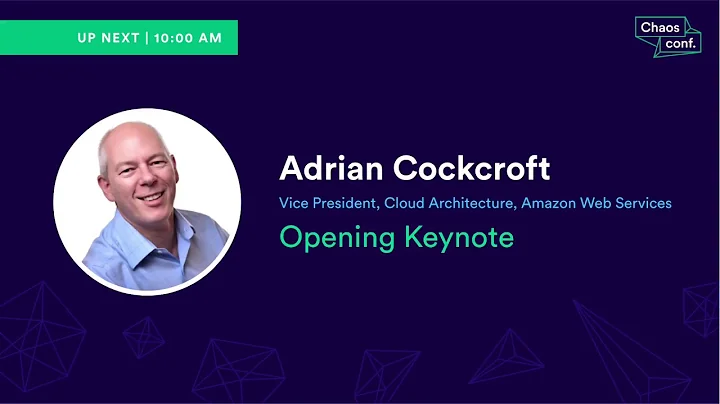Today, when traffic costs are getting more and more expensive, for many companies, private domain is not a question of whether to do it or not, but a question of "how to do it".
How to create a private domain with twice the result with half the effort?
What exactly are sesame and watermelon in the private domain?
How do you understand the nature of the private domain?
In this article, Wei Xi will talk with everyone -
1. Breaking the misunderstanding of private domain: private domain ≠ harassment
"Sister, add WeChat!"
Whenever a service staff offline recommends to customers to add When using WeChat, there may be two reactions -
The first one - "What should I add? Will you send me ads if I add it?"
The second one - "Okay, if you have any questions, you can contact us above. Are you right? "
Obviously, the first answer is someone who has experienced harassment, while the second answer is a beneficiary of private domain services.
These two different reactions actually reveal the completely different ends of private domain operations.
When many companies develop private domains, they are simple and crude. They think that the most important thing in a private domain is the ability to send messages in groups. After adding a private domain, you can send messages in groups. However, everyone knows that "water can carry a boat, but it can also overturn it."
You must know that if you can People who add you on WeChat are usually loyal customers who have a good impression of the company, or at least customers who have no negative impression of the company. The role of the
private domain must be to strengthen this good impression, not to harass them through crude group messages.
Once they are disturbed, the company will lose not only its existing loyal customers, but also the potential customers they may bring behind them.
If it goes a step further and they start talking to others about the negative impression of the business, then this invisible loss becomes even more difficult to measure.
Therefore, the private domain should become an asset, rather than turning the private domain into a liability through harassment.
The most important thing for enterprises to do private domain is to know what is the sesame of private domain? What is a private watermelon?
A little short-term traffic obtained by disturbing users is sesame, but establishing long-term and sustainable trust with customers is watermelon.
If you pick up sesame seeds and lose the watermelon, the gain outweighs the loss.
So how can we achieve a breakthrough in the private domain without disturbing others?
In my opinion, the key is to have two changes - a change in mentality and a change in perspective.

First, we must realize the transformation from the "harvest mentality" to the "service mentality".
It is undeniable that a small number of companies actually go into the private domain with a "harvest mentality". They equate the private domain with "private property."
believes that as long as a user enters his private domain traffic pool, he becomes the target of his harvest. He always wants to "make a profit" from users. With this mentality, when building a private domain, the harder he tries, the faster he will die. .
In fact, the "service mentality" is the long-termism of the private sector.
When a user enters the private domain traffic pool, the first reaction of the enterprise should actually be - "I can finally serve my users more directly and conveniently!"
This is the correct way to open the private domain.
What is a service mentality?
If you are a restaurant, Private Domain can display coupons and new dishes in Moments, and allow regular customers to directly send messages to reserve private rooms;
If you are an insurance institution, Private Domain can easily help insured customers organize their insurance policies. , give away concert tickets to VIP customers;
If you are a cosmetics company, Private Domain can quickly provide customers with free skin testing services, give away trial packs suitable for the user's skin type from time to time, and inform her that the items in her collection are on sale.
Second, it is necessary to realize the transformation from the "enterprise perspective" to the "consumer perspective".
Perspective switching is also a pitfall that is not easy to avoid when companies are doing private business. They always think about how many orders and sales I have to complete, but they don’t know what your consumers want.
In fact, I especially recommend that the bosses and operating directors of such companies, as ordinary users, add more enterprise WeChat from different industries.
Really experience what you want as a consumer, what kind of private domain actions you like, and what kind of private domain operations you dislike.
Only by truly switching from the "enterprise perspective" to the "consumer perspective" can we personally feel what users are thinking.
After all, consumers are not stupid, and they can feel whether they are paying attention.
Let me make a point here - the core of private domain operations is to improve the signal-to-noise ratio of communication with customers. What does
mean?
Signal-to-noise ratio is a term in information theory, which refers to the ratio of signal to noise in communication. The higher the signal-to-noise ratio, the smoother the communication process.
So what are signals in private domain communication? What is noise in private communication?
Simply put, what is useful to consumers is signal, conversely, what is useless to consumers is noise.
When what is conveyed to consumers in private domain operations is not signals but noise, private domain communication becomes "disturbing" or even "harassment."
Therefore, private domain operations must improve the signal-to-noise ratio of communication with users, so that every group message, every circle of friends, and every message push is a signal, rather than noise to customers without users.
2. Understand the connotation of private domain: Restraint is also the gene of Enterprise WeChat

As a professional private domain management tool, Enterprise WeChat’s design concept does not encourage companies to “disturb” customers.
Slogan of Enterprise WeChat is "connection creates value". Yes, Enterprise WeChat encourages connections, but please note that it encourages connections that create value, rather than disturbing users' connections.
In fact, restraint is reflected in many aspects of the product design of Enterprise WeChat -
First of all, the number of group messages and friend circles is strictly limited.
The current rule is that each customer/customer group can only receive one group message from the same company every day. At the same time, customers can see only 3 friend circles from the same company every day, to the maximum extent. Preventing uncontrolled message bombardment and screen swiping in Moments.
Secondly, the upper limit of the number of external customers that corporate members can add is also limited by various factors.
It is related to many factors such as the number of active people in the enterprise, customer complaint rate, customer response rate, etc. Only when the comprehensive indicators exceed a certain threshold can expansion be allowed.
The essence of this is to allow companies to verify their service capabilities and customer satisfaction before they can add more customers.
At the same time, a fully functional message push interface has been developed to facilitate personalized push.
encourages the use of API interfaces to connect with various systems within the enterprise to send personalized messages to thousands of people, instead of sending the same message to every customer.
The logic behind this is that targeted personalized messages are related to the customer themselves. When something is particularly relevant to the customer themselves, the possibility of it being harassing information will be reduced.
From the above measures, we can see that WeChat Enterprise does have a deep understanding of how companies can do a good job in the private domain without disturbing them.
Its starting point at multiple levels of product design is to increase the signal-to-noise ratio of message promotion as much as possible to achieve positive interaction between enterprises and customers.
Enterprise WeChat clearly knows that if the private domain becomes the next marketing text message, there will be no way out, so it will protect users from being disturbed to the greatest extent at the product design level.
In fact, the private domain is a slow business. Being quick and quick is not a private domain, nor is being simple and crude.
A good private domain must be moisturizing and silent, and interacting with customers on the same frequency is the long-term principle of private domain operations.

3. Private Domain Practical Cases - Growth under "Do Not Disturb"
What we talked about above are all concepts, which are the level of "Tao". Let's talk about the level of "technique" in actual combat.
Let’s take a closer look at how the following three companies turned private domain operations into a tool for corporate growth without disturbing them.
Private domain operations must be "non-disturbing". It is actually very simple. The following three cases all unconsciously followed the following two principles during the private domain operation -
1. Provide value and effectively solve problems for customers;
2. Adhere to boundaries and find the greatest common denominator with customers;
Case 1: Sumitomo Hotel - How the "waiter" impresses old customers
Once the epidemic hit, the revenue of Sumitomo Hotel, which has more than 1,000 stores across the country, was halved, and business was bleak. , how to find a way out has become a huge challenge facing CEO Zhu Hui.
2 At the end of 2020, Zhu Hui decided to try to serve hotel customers through corporate WeChat -
They created an IP image for external services called "Store Waiter".
Zhu Hui set a small goal: he planned to increase the proportion of customers from 4% of his own channels to 10% in 100 days.
This was not an easy goal, and Zhu Hui had no idea at the time.
As a result, on the first day of resumption of business after the Spring Festival in 2021, the goal of 10% of customers from its own channels was achieved.
So, how did Sumitomo do it?
I think Sumitomo’s private domain operation strategy is very worthy of reference by peers in the hotel industry -
It’s actually a few simple steps -
First, make customers willing to join by providing value.
The waiter's words when adding customers to WeChat are as follows - "In the future, you can use the waiter to book a hotel. Not only will the price be more favorable, but it will also remind you of the latest local epidemic prevention policies and help you reserve parking spaces. This can be done in stores across the country. Use. "
is simple and sincere, but expresses the value point very clearly, and customers are naturally willing to add it.
Adding is only the first step, more importantly, the following services need to be done well -
If Sumitomo guests who have added a waiter want to stay again, they can send a message to WeChat to tell the clerk their check-in plan and ask the clerk to help recommend room types. , generate orders directly in the background and pay with one click.
Usually a room can be booked in just two or three sentences, which saves the trouble of previous online operations. Especially when it comes to complex operations such as unsubscribing, customers can simply send a voice message on WeChat to solve the problem.
For another example, if check-out is about to take place and the guest is still outside and cannot come back in time, you can purchase a late check-out coupon on your mobile phone to delay check-out until 3 p.m.
If you want to stay for a few more days, you can make a reservation and extend your stay by sending a message to the "waiter".
Secondly, attract customers to make secondary purchases through tangible benefits.
The hotel will recommend personalized benefits based on customers' daily preferences. For example, for business travelers in first-tier cities, they will send " Starbucks " coupons, and the redemption rate is particularly high.
But if you often give out benefits, will it disturb customers and cause them to be blacklisted?
Sumitomo’s approach is to cleverly use the corporate WeChat Moments. Many benefits are distributed through the Moments. Because it is “not intrusive” and provides “real benefits”, the blocking rate for regular customers is less than one thousandth. six.
So far, through the "store waiter", Sumitomo's repurchase rate has increased from 1.3% in 2020 to 44.5% now. Sumitomo has connected 1.4 million users through corporate WeChat and created 140 million in revenue, accounting for total revenue 51.9%.
Case 2: Luckin Coffee - Private domain self-rescue after financial crisis
After the financial fraud crisis, Luckin Coffee faced many tests such as brand reputation, personnel loss and marketing expense reduction.
Private domain operation based on corporate WeChat was one of the important decisions made by the management to get out of the crisis, because at that time, it was better to manage users well to retain their hearts than to attract new users through advertising.
Let’s first look at the results of Ruixing’s private domain trial period -
In April 2020, Ruixing started a private domain pilot with 50 stores, and soon connected more than 1.8 million users. Among these 1.8 million users,
contributes more than 35,000 cups of direct orders every day, and promotes orders of more than 100,000 cups through group reminders, accounting for about 10% of the orders.
At the same time, after joining the community, the monthly consumption frequency of these users increased by 30%, and the number of weekly repeat purchases increased by 28%.
In the next two years, Ruixing quickly copied the success of 50 pilots to stores across the country. Today, the number of Ruixing’s private domain users has reached 20 million.
How did Luckin achieve such outstanding results?
Its core still relies on a warm and non-intrusive operation method -
Luckin uses the API interface provided by Enterprise WeChat to open up the store's inventory, product and other systems. The system is based on the dimensions of city, store, preferred taste, etc. Serve users through considerate "one-on-one" push capabilities.
For example, the weather robot developed by Luckin based on the enterprise WeChat interface can recommend different coffees and services to users based on the influence of temperature and weather in different cities.
For example, Luckin will recommend cold drinks in cities with high temperatures, and hot drinks in cities with low temperatures; it will offer more takeaway discounts on rainy days when it is inconvenient for users to go out, etc.
At the same time, when new products are released, Luckin’s “one-to-one” push service will also combine system capabilities to provide users with more personalized services.
For example, when Coconut Cloud Latte is launched, new product information and coupons are pushed to latte lovers through a "one-to-one" push service; when new American-style products are launched, they are recommended to American-style lovers.
Through this considerate "coffee butler" service, users will not only not block Luckin's "one-to-one" push, but will be more willing to buy because of the feeling that "Luckin still understands me". Luckin's return The purchase rate also increased by 30%.
Case 3: Chow Tai Fook Jewelry - Turning retail clerks into online jewelry consultants
Despite adverse factors such as the epidemic, jewelry giant Chow Tai Fook still achieved a 41% revenue growth and a profit growth of 11.4% in 2022. Eye results.
So where does the driving force for growth come from?
Chow Tai Fook clearly pointed out two major factors in the financial report - the "real power" of driven by the retail expansion strategy and the "cloud power" driven by the smart retail strategy.
Among them, "cloud power" mainly refers to the revenue of smart retail channels empowered by digital technology, and the private domain traffic empowered by corporate WeChat also adds a lot to its smart retail strategy.
Let’s take a look at Chow Tai Fook’s unique features in private domain operations -
As early as during the epidemic in early 2020, Chow Tai Fook connected more than 40,000 employees online in just one week based on corporate WeChat. The number of activated customers reached 28,000.
Every offline retailer has also become an online jewelry consultant for customers through corporate WeChat. Each jewelry consultant’s online business card has the logo of the "Chow Tai Fook" certified company, which not only increases trust but also facilitates direct service for them. client.
For example, a man in his seventies wanted to give a gift to his granddaughter who was about to turn ten. The jewelry consultant used WeChat to make a video call to the customer, showing every texture and detail of the jewelry in a short time. In half an hour, online orders and transactions were completed in one go.
Cloud Business 365 Mini Program based on Enterprise WeChat is also a highlight of Chow Tai Fook’s private domain operations.
This small program can also sell offline goods as well as online goods. It is also connected with the internal membership system and coupon distribution system, so that it can recommend coupons that meet the needs of customers based on their characteristics. .
For example, if a customer's membership points can be redeemed for gifts, the jewelry consultant can notify the customer as soon as possible without disturbing the customer.
Chow Tai Fook also applies corporate WeChat to its jewelry customization business.
Jewelry consultants can directly generate customized links in the company's WeChat and send them to customers. Customers can then complete the five-step customization process under the guidance of the jewelry consultant, such as choosing a specific craftsmanship, engraving their name, etc.
By recommending the right products to the right customers at the right time through a "do not disturb" approach, Chow Tai Fook's online revenue on corporate WeChat and the WeChat ecosystem has exceeded that of other e-commerce platforms, and its member repurchase rate has increased from 25% to 50%.
drove the overall turnover to increase by 79% in the first half of fiscal year 2022, creating a sales peak in recent years.
From the above three cases, we can find that the operating rules of the business world are actually very simple - creates the needed value, and the economic system will reward you.
Yes, the same is true for private domain operations. Enterprises must transform their "requesting mentality" into a "giving mentality".
Therefore, don’t ask how much money you can make from customers, but ask how much value you can create for customers. Only in this way can a warm and “non-intrusive” private domain be long-lasting.
private domain is one of the important blue oceans in today's era of disappearing dividends. We hope that companies can go through the cycle and achieve growth in the process of "not disturbing".
Author: Wei Xi, producer of "Wei Xi's Guide to the North" and technology columnist, specializes in writing long articles, focusing on analyzing the underlying logic of the Internet and social sciences!




![7 Step Go to Market Plan [Product Marketing Strategy] - DayDayNews](https://i.ytimg.com/vi/GVcavk0lgmI/hq720.jpg?sqp=-oaymwEcCNAFEJQDSFXyq4qpAw4IARUAAIhCGAFwAcABBg==&rs=AOn4CLCNzD2KBrO7JAYoKU1DDZfrs0tSvw)
















